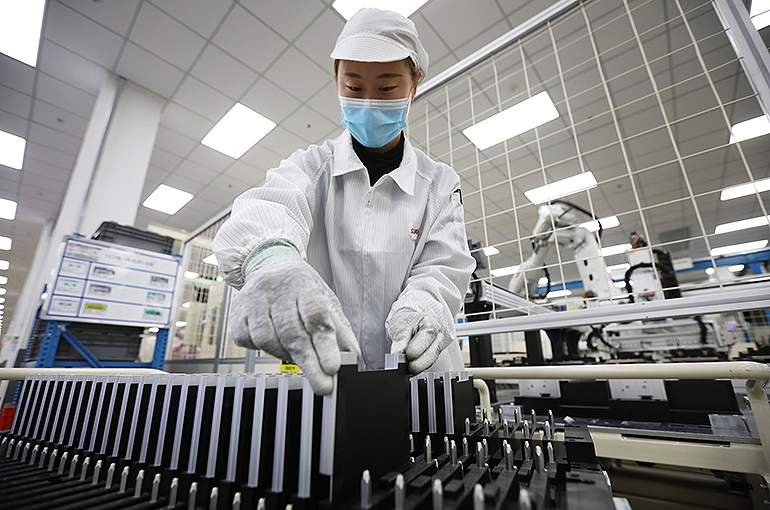 Chinese Firms Need New Approach as US Ends Subsidies on Foreign Lithium Batteries
Chinese Firms Need New Approach as US Ends Subsidies on Foreign Lithium Batteries(Yicai) Jan. 4 -- Chinese battery makers should adopt new overseas strategies after the United States ended consumer subsidies on the purchase of batteries produced in some countries this year, according to industry insiders.
In the short term, Chinese battery companies should turn to other overseas markets than North America, such as Europe and Africa, while in the medium to long term, they should build factories overseas and license their technologies, The Paper reported yesterday insiders as saying.
Section 30D of the Inflation Reduction Act issued by the US Treasury and the Internal Revenue Service became effective this year. According to the IRA section, battery modules produced by some foreign entities, including China, Russia, North Korea, and Iran, will not be eligible to be used in new energy vehicles sold in the US.
With the new IRA, the number of electric vehicle models eligible for subsidies in the US fell to 13 this year from 25 last year. Some of the models excluded are those from Nissan’s EV brand Leaf, which use batteries from China’s Envision Energy, and Tesla’s Model 3 and the Volkswagen ID.4, which use batteries from China’s Contemporary Amperex Technology.
China’s lithium-ion battery exports to the US rose 43 percent to USD12.3 billion in the first 11 months of last year from a year earlier, accounting for nearly 21 percent of the total, according to data from the China Industrial Association of Power Resources. Meanwhile, exports to Europe totaled USD23.6 billion, accounting for almost 40 percent of the total.
Last year, China’s lithium-ion battery exports to Africa grew the fastest, up 109 percent from the year before, followed by South America, with an increase of 66 percent. The figures show how Chinese firms are pushing to expand their presence in other markets than North America.
With regard to the medium-to-long-term strategies of building overseas factories or licensing technologies, some Chinese battery makers have already announced related plans.
CATL said last February that it had agreed to provide technology and service support to Ford Motor’s planned USD3.5 billion lithium iron phosphate battery plant in Michigan.
In September last year, Eve Energy unveiled a plan to set up a joint venture in the US with Daimler Truck and two other US firms to build a 21-gigawatt-hour batter plant with a total investment of over USD2.6 billion.
Editor: Futura Costaglione